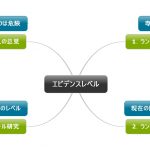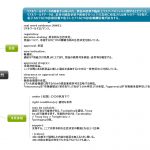
日本語版(English follows)
バイリンガル製薬業界概説について
バイリンガル製薬業界概説では、製薬業界の特有の慣習や仕組みについて、日本語で解説し、それを英語で伝える際のコツを紹介していく。
第2回の今回は医薬品の開発ステージと薬事イベントを採り上げた。
英語版はネイティブスピーカーが朗読した音声付である。
Contents
医薬品の開発ステージ
医薬品の開発は複数のステージからなり、最初のステージから医薬品が世に出るまでには10年を超える期間がかかることも珍しくない。
一般的な医薬品のライフサイクルは以下の通りである:
探索研究(化合物の創生、スクリーニングを含む)、製剤・品質試験、前臨床試験、臨床試験(第I相試験、第II相試験、第III相試験)、申請、承認、上市、市販後調査、再審査
前臨床試験までは規模が小さく、動物、非生物で試験ができるので基本的には製薬会社社内で完結する。
第I相試験からはいわゆる臨床試験であり、ヒトでの試験となるため、社内では完結せずに病院など治験施設が必要になる。
また、近年医薬品開発のグローバル化が進んでおり、複数の国で実施される試験に関して日本から参加すると言う例が増えている。
医薬品ライフサイクルと薬事イベント
前回医薬品業界は規制に縛られているという話をしたが、医薬品の開発やライフサイクルマネジメントは規制当局とのやりとりなしでは成り立たない。
この規制当局とのやりとりに関わる業務を薬事というが、医薬品のライフサイクルごとにほぼ定型的な規制当局とのやりとり(薬事イベント)が存在する。
まず、臨床試験を開始する前に、懸念事項があり当局に相談しておきたい場合、治験相談を行う。この相談枠は開発の相別に複数あり事前面談と対面助言がある。
いざ臨床試験を実施することになった場合、治験計画届の提出が必要であり、治験届で届け出たことを変更する場合は治験計画変更届の提出が必要である。
また、臨床試験が終了又は中止した場合は治験終了届又は治験中止届の提出が必要である。
必要な臨床試験が終了し、承認申請に必要なデータが揃ったら製薬会社は製造販売承認申請に進む。
申請すると審査が始まり、PMDAから申請資料の不明点への質問である照会事項が発出される。
この照会事項に適切に書面で答えると、PMDAは審査報告書をまとめ専門協議で外部専門家と承認可否について議論・合意し、承認可能であれば続けて薬事・食品衛生審議会で審議、報告を行う。
こうして薬事・食品衛生審議会での審議・報告を終えると厚労省から製造販売承認が降りる。
承認後に医薬品が薬価基準に収載されると国民皆保険の償還対象となり、上市することができる。
しかし、上市までに臨床試験で得られたデータは量の点で不十分なので市販後調査を行なって継続的に有効性・安全性を調査する。
市販後調査終了後に、製薬会社は再審査の申請を行い、PMDAは承認された有効性及び安全性が問題なかったかを評価する。
この再審査が終わるとジェネリック医薬品が参入してきて新薬のライフサイクルはほぼ終了である。
今回紹介ししたトピックについてより詳しく知りたい方はPMDAウェブサイトや医薬品製造販売指針を参照のこと。
English version(英語版)
About Bilingual Pharma Industry Topics
In this Bilingual Pharma Industry Topic series, pharma-industry specific practices or ways of doing businesses are explained in Japanese, followed by tips for conveying the same info in English.
The second topic for the series is the drug development stage and regulatory event for each stage.
Stages of drug development
Stages for drug development consists of several steps and it is not uncommon to take more than 10 years from the first step to when the drug is finally launched.
The following are the life cycle of drugs in general:
Exploratory research (creation and screening of new molecular entities), formulation and quality research, preclinical research, clinical research (Phase 1, Phase 2, Phase 3 studies), market approval submission, market approval granted, product launch, post-market studies, and re-examination
Up until the preclinical research stage, studies can be conducted in a small scale with animals and nonliving subjects, which can be basically completed within the pharma company.
Starting the Phase 1 study stage, studies with humans are necessary, which require clinical investigation sites such as hospitals.
Recently, drug development is increasingly globalized, and more and more studies are conducted in multiple countries including Japan.
Drug life cycle and regulatory events
The previous topic was about the pharma-industry being strictly restricted by regulations.
Interactions with the regulatory authorities are indispensable for drug development and life cycle management.
The area of jobs and expertise related to regulatory authority interactions is called regulatory affairs.
There are standard interactions with the regulatory authorities (or regulatory events) for each stage of the drug life cycle.
First, have a clinical trial consultation if there are some concerns that the company would like to consult with the PMDA before the trial starts.
Different types of consultations (pre-consultation and face to face advice) are available depending on the development phase.
In case a clinical trial is conducted, a clinical trial protocol notice needs to be submitted. If there is any change in the information submitted with the clinical trial protocol notice, a notice of changes in the clinical trial protocol notice is required to be submitted. When a clinical trial is completed or terminated, a notice of completion or discontinuation of the clinical trial needs to be submitted.
When all necessary clinical trials are done, completing the necessary data for a market approval submission, the pharma-company proceeds to submission.
After the submission is done, the review process starts and questions from the PMDA about the submission documents, called inquiries, are issued.
When the pharma-company appropriately answers the series of inquiries in writing, the PMDA prepares a review report, discusses and agrees with external experts on the drug approvability at Expert Discussion, and eventually brings the topic to the Pharmaceutical Affairs and Food Sanitation Council if approvable.
If the drug is successfully judged and reported as approvable in the Pharmaceutical Affairs and Food Sanitation Council, the MHLW grants market approval for the drug.
After the approval is obtained, the drug can be launched if it is listed in the National Health Insurance price listing, which renders the drug subject to National Health Insurance reimbursement.
However, clinical data obtained before the product launch is very limited, and the effectiveness and safety of the drug need to be continuously evaluated through post-market studies.
After the time the drug’s post-market studies are complete, the pharma company conducts re-examination submission, followed by the PMDA’s evaluation whether the drug’s original evaluation on efficacy and safety at approval were reasonable.
After re-examination, generic drugs can enter the market, and the drug’s life cycle is almost over.
For those who would like to know more about the topic, please refer to the PMDA website and Drug Approval and Licensing Procedures in Japan.
解説
専門用語は赤字、製薬必修フレーズを構成する言い回し(製薬必修表現)は青字とした。
専門用語
drug development stage:医薬品の開発ステージ。stages of drug developmentともいえる。
exploratory research :探索研究。新規化合物が医薬品としての候補に挙がるまでの一連の基礎研究を指す。
new molecular entities:いわゆる新規化合物=新薬
formulation and quality research:製剤品質研究。候補化合物に最適な剤形や品質の研究。
preclinical research:前臨床研究。ヒトでの試験前に候補化合物の有効性・安全性を動物で確認するためのステージ。
clinical research (Phase 1, Phase 2, Phase 3 studies):臨床研究(第I相、第II相、第III相試験)。ヒトを用いて候補化合物の有効性・安全性を検討するステージ。
product launch:製品上市。承認と上市は同じようであるが、処方箋医薬品は国民皆保険の対象であり薬価基準に収載されないと保険で使用できないため、区別している。
post-market studies:市販後調査。本文中にも説明しているが、医薬品は限られた臨床試験データを基に承認されるので、特に安全性に関して市販後のフォローアップが必要不可欠である。
re-examination:再審査。医薬品の有効性と安全性に関して再審査期間が終った後に市販後調査等の結果から再度評価する制度。
clinical investigation sites:治験施設。治験に参加する医療機関を指す。通常clinical sitesと表現することが多い。
clinical trial consultation:治験相談。PMDAが提供する相談で承認申請のための臨床試験に関するもの。
pre-consultation:事前面談。治験相談には通常、事前面談と対面助言の2種類がある。事前面談は対面助言の論点の整理等に用いられる。
face to face advice:対面助言。臨床試験のデザインの妥当性、臨床データパッケージ等についてPMDAの見解を聞くことのできる正式な面談。
clinical trial protocol notice:治験計画届。通称治験届。臨床試験を開始する前に提出し、審査を受ける必要がある。
notice of changes in the clinical trial protocol notice:治験計画変更届。通称治験変更届。治験届で届け出た内容の変更に用いる。
notice of completion or discontinuation of the clinical trial:治験終了届又は治験中止届。治験が終了した際や途中で中止になった際にも適宜届け出し、当局に報告する必要がある。
review:承認審査。承認申請後に始まるPMDAでの審査を指す。
submission documents:申請資料。承認申請の資料なので、通常CTDを指す。
inquiries:照会事項。queryやquestionともいう。
review report:審査報告書。最終的にはPMDAウェブサイトに公開され、どのように承認申請が審査されたかを示す報告書。
Expert Discussion:専門協議。PMDAが承認審査中に外部専門家と協議するイベント。
Pharmaceutical Affairs and Food Sanitation Council :薬事・食品衛生審議会。厚生労働大臣の諮問機関であり、各分野の専門家から構成される会。最終的な医薬品の承認の可否を判断する。
generic drugs:ジェネリック医薬品。ブランド医薬品の特許が切れた後、かつ再審査期間が終了した後に参入してくる有効成分が同じノンブランド医薬品。
用語については本サイトの用語集も適宜参照されたい。
製薬必修表現
market approval granted:製造販売承認。ここでは与えられたという意味のgrantedを用いてMHLWの観点での表現である。
regulatory (authority) interaction(s):規制当局とのやりとり
depending on [名詞]:○○次第で







